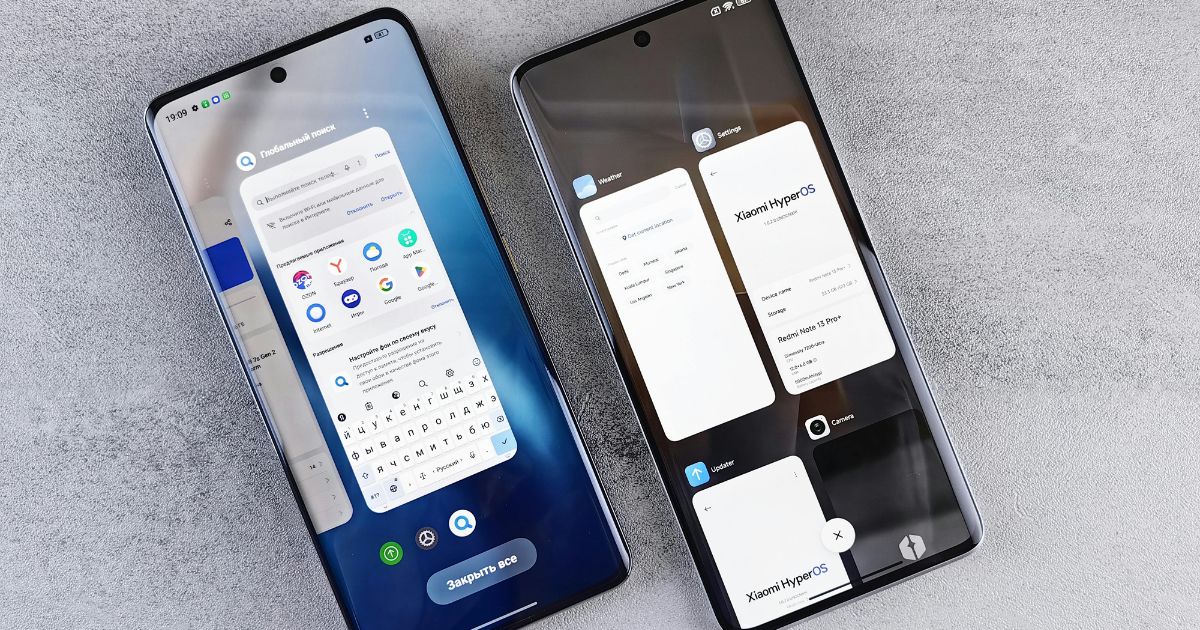Businesses must choose the right technology to reach and engage their audiences effectively. Two of the most common options are web apps and mobile apps—both of which serve unique purposes and cater to different user needs.
While web apps provide broad accessibility through browsers, mobile apps deliver personalized, high-performance experiences on smartphones and tablets.
Understanding the key differences between these two technologies and their distinct development approaches is crucial for businesses looking to optimize their digital presence.
In this article, we’ll explore the core distinctions, advantages, and use cases of web apps vs mobile apps, helping you make an informed decision for your next project.
What is Web App Development?
Web app development involves creating software applications that run within web browsers, accessible through a URL, without the need for installation on a user’s device. Web apps operate on the Internet, relying on standard web technologies such as HTML, CSS, and JavaScript to create interactive, user-friendly interfaces. HTML provides the structure, CSS enhances the visual presentation, and JavaScript enables dynamic functionality and responsiveness.
On the server side, web app development often involves scripting languages such as PHP, Ruby, Python, or Node.js, which handle data processing, database interactions, and other back-end operations. Web apps are hosted on remote servers, allowing them to be accessed from any device with a browser and Internet connection.
One key advantage of web apps is that they are platform-independent, working across operating systems like Windows, macOS, and Linux, as long as a modern web browser is available. Web apps don’t require users to download or install anything, which reduces storage demands and simplifies updates. These updates happen server-side, ensuring users always have access to the latest version without needing to take action.
Web app development is ideal for businesses that want wide accessibility across devices, ease of maintenance, and a cost-effective development process compared to native mobile apps.
The Use of Internal Business Web App Development
Internal business web app development focuses on creating software solutions specifically designed to streamline and enhance a company’s internal operations. These web apps are accessible only to employees or authorized users within an organization, serving critical functions such as project management, communication, data tracking, and workflow automation.
For example, an employee management system is a common internal web app used to manage tasks like tracking employee attendance, handling leave requests, and generating payroll reports. By integrating databases and user interfaces, these web apps can simplify HR processes and provide real-time data visibility, improving efficiency and reducing manual errors.
Another example is a customer relationship management (CRM) system built as a web app for internal use. Businesses often need to track leads, manage customer interactions, and monitor sales pipelines. A web-based CRM allows employees to access and update customer data from any device, improving collaboration and providing sales teams with real-time insights, no matter where they are located.
These web apps are designed with the specific needs of the business in mind and are hosted on private servers or secure cloud platforms to ensure data security and easy maintenance. By automating processes and centralizing information, internal web apps help businesses operate more efficiently and make informed decisions.
What is Mobile App Development?
Mobile app development refers to the process of creating software applications specifically designed for mobile devices, such as smartphones and tablets. These apps are typically available for download through app stores like the Apple App Store and Google Play Store, making them easily accessible to users.
Mobile apps come in two main types: native apps and hybrid apps.
Native mobile apps are developed specifically for a particular platform, such as iOS or Android, using platform-specific programming languages. For iOS, the programming language is typically Swift or Objective-C, while Kotlin and Java are common for Android development. Native apps take full advantage of the platform’s hardware and software capabilities, providing a smooth and optimized user experience with access to device features like the camera, GPS, and push notifications.
Native mobile apps are known for their performance and reliability since they are built with the specific platform in mind, but they require separate development for each platform, which can increase costs.
Mobile app development focuses on creating intuitive, responsive interfaces that work seamlessly on small screens, while optimizing performance for mobile device constraints like battery life and limited processing power. Whether for games, productivity tools, or business functions, mobile apps have become essential tools for both consumers and companies, offering convenience and mobility.
Mobile Applications and Web Applications: Difference Between the Two
While the main difference between mobile and web apps is obvious, there are also other differences which should be kept in mind. These differences include the following.
Performance
One of the key differences between mobile apps and web apps is their performance. Native mobile apps are built specifically for a platform, such as iOS or Android, and are optimized to make full use of the device's hardware. This means they can take advantage of features like the camera, GPS, and accelerometer, delivering faster and smoother performance. Because they are coded in platform-specific languages (such as Swift for iOS and Kotlin for Android), native apps are highly responsive and tend to perform better under heavy loads or with complex animations.
In contrast, web apps run within a web browser, relying on Internet connectivity and browser performance to function. Since they are not optimized for specific hardware, they can be slower and less responsive than native mobile apps, especially when handling intensive tasks. Web apps use technologies like HTML, CSS, and JavaScript, and performance may vary depending on the user’s browser or device.
Accessibility
Web apps offer greater cross-platform accessibility, meaning they can run on any device with a browser, whether it's a desktop, tablet, or smartphone. This makes them universally accessible, as they are platform-independent and require no installation. However, web apps depend heavily on a stable Internet connection. Without Internet access, many web apps become limited in functionality or entirely unusable.
Mobile apps, on the other hand, often offer offline functionality. Once installed, many mobile apps can run without Internet access, allowing users to access core features even when offline. For example, apps like Google Maps allow offline navigation, and streaming apps enable users to download content for later viewing. This makes mobile apps more versatile in situations where users have limited or no connectivity.
Development Cost and Time
Developing a native mobile app can be more time-consuming and costly than a web app because native apps require separate development for each platform (iOS, Android). Each platform has its own design guidelines, programming languages, and testing requirements, leading to increased complexity in development and maintenance. Additionally, updates need to be approved by app stores before being rolled out to users, which can further delay deployment.
Web apps, by contrast, are generally quicker and cheaper to develop because a single codebase can work across multiple platforms. Web developers use a unified stack of technologies (HTML, CSS, JavaScript), and updates are instantly available to users once they are pushed to the server. This streamlined process can save businesses time and development costs but may sacrifice some of the performance and feature-rich capabilities of native apps.
User Experience
Mobile apps generally provide a more polished and tailored user experience. They adhere to platform-specific design standards, like Apple’s Human Interface Guidelines or Google’s Material Design, to create intuitive and familiar interfaces for users. These apps can fully integrate with device features such as touch gestures, notifications, and hardware components, offering a seamless and engaging experience. Mobile apps are also optimized for small screens, with touch-friendly interfaces that enhance usability.
Web apps, in contrast, need to work across multiple devices and screen sizes, which can limit how well they can be tailored for specific platforms. Their user interface may not feel as native or fluid as a mobile app, and they can lack the deep integration with hardware that mobile apps enjoy.
However, web apps are constantly improving and can still provide a responsive design that adjusts to different devices, though they may not reach the same level of performance and user experience as a well-crafted native app.
Hybrid Mobile Apps vs Progressive Web Apps
Hybrid Mobile Apps are applications that use a single codebase to run on multiple platforms (iOS and Android) while still delivering a somewhat native experience. They are typically built using frameworks like React Native or Flutter, which allow developers to write code once and deploy it across different operating systems. Hybrid apps are housed in a native container and can access certain device features, like the camera or GPS, but still rely on web technologies like HTML, CSS, and JavaScript for rendering.
Progressive Web Apps (PWAs) are web applications that behave like native apps in many ways. They run within web browsers but offer features typically associated with native apps, such as offline functionality, push notifications, and home screen icons. Built with standard web technologies (HTML, CSS, and JavaScript), PWAs can be accessed via a URL and don't require users to download them from app stores. They work across devices but offer a more app-like experience than traditional web apps.
Here are some key differences between the two that should be taken into consideration when deciding between hybrid mobile apps and progressive web apps.
- Performance: hybrid apps tend to offer better performance than PWAs because they are compiled into native code and can access more of the device’s hardware directly. However, they may still not perform as smoothly as fully native apps due to their reliance on web views for some parts of the interface. PWAs, while highly optimized for web use, depend on the browser and Internet connection, which can impact performance, especially with complex tasks.
- User experience: hybrid apps provide a more native-like experience than PWAs, allowing for more customized and platform-specific designs. They also integrate more deeply with device features, such as push notifications and local storage. PWAs, though improving in UX, don’t offer the same depth of integration, but they are more universally accessible.
- Business requirements: hybrid apps are suitable for businesses that want a near-native experience while saving on development costs. PWAs are ideal for companies looking for wide accessibility with minimal development time, especially if they don’t need full hardware integration or app store presence.
Choosing the Right Approach for Your Business
When deciding between developing a web app or a mobile app, businesses should consider the following key factors.
Audience
The target audience plays a critical role in determining which type of app to develop. If your audience primarily uses desktop or laptop computers and needs access to your services via multiple devices (laptops, tablets, etc.), a web app might be the best option.
However, if your audience frequently uses mobile devices and prefers a seamless, on-the-go experience, a mobile app is better suited.
App’s Purpose
Consider the app's core functionality and how users will interact with it. If the app primarily serves the purpose of delivering content, managing forms, or providing access to real-time data, a web app is often sufficient. Web apps work well for businesses offering services like booking platforms or online retail sites.
On the other hand, if the app needs to leverage specific mobile device features like cameras, GPS, or Bluetooth, a mobile app is necessary. Mobile apps are ideal for more interactive experiences, such as gaming, social media, or e-commerce, where user engagement and real-time functionality are important.
Budget
Budget is another key consideration. Developing a mobile app, particularly native apps for both iOS and Android, can be more expensive than building a web app. Mobile apps often require separate codebases for different platforms and ongoing updates due to changes in app store requirements or operating systems.
Web apps are typically more cost-effective to develop since they only require one version to work across multiple platforms. However, the need for complex features or performance optimization in web apps could increase development costs.
Technical Requirements
Assess the app’s technical requirements. Web apps are limited in accessing certain device features and are more dependent on Internet connections, while mobile apps can use device capabilities like geolocation, push notifications, or offline access. If your app needs these advanced features, mobile apps offer more flexibility. Conversely, if the app requires minimal device interaction and prioritizes universal access, a web app is likely the better choice.
Choosing the Right Web and Mobile App Developer
Choosing the right mobile and web app developer is crucial for the success of your project. Here’s what to look for.
- Experience and expertise: look for developers with a strong portfolio and proven experience in the specific type of app you need—whether it’s a native mobile app, a web app, or a hybrid solution. They should be skilled in the required programming languages and frameworks, such as Swift, Kotlin, React Native, or Flutter for mobile apps, and HTML, CSS, JavaScript for web apps.
- Industry knowledge: the developer should understand your industry and business needs. They should be able to suggest features and functionalities based on your target audience and goals.
- UI/UX design capabilities: a good developer will focus on creating a user-friendly and visually appealing interface. They should have experience in design for small screens (in the case of mobile apps) and ensuring cross-platform compatibility for web apps.
- Communication and collaboration: effective communication is key. Look for developers who are transparent, responsive, and willing to collaborate closely throughout the development process.
- Post-launch support: ensure they offer ongoing maintenance, updates, and bug fixes after the app’s launch to keep it functioning smoothly.
AppIt’s Approach to Developing Web Apps and Mobile Apps
At AppIt, we guide businesses through the decision-making process of whether to develop a web app or a mobile app by carefully analyzing their unique needs, goals, and target audience.
We start by understanding your business objectives, evaluating how your customers interact with your brand, and assessing the technical requirements of your project. Whether you need wide accessibility through a web app or a highly engaging, feature-rich mobile app, we provide tailored recommendations based on these insights.
Our team is proficient in developing both web apps and mobile apps, offering expertise in key technologies such as HTML, CSS, JavaScript, and server-side scripting for web apps, as well as Swift, Kotlin, and React Native for mobile apps. With this versatile approach, we ensure that your app is not only functional and user-friendly but also optimized for performance, whether it's cross-platform or built natively for iOS and Android.
At AppIt, we help businesses make informed decisions and deliver high-quality solutions that align with their vision.
Ready to transform your digital strategy? Contact us today to discover how we can help bring your web or mobile app to life!








